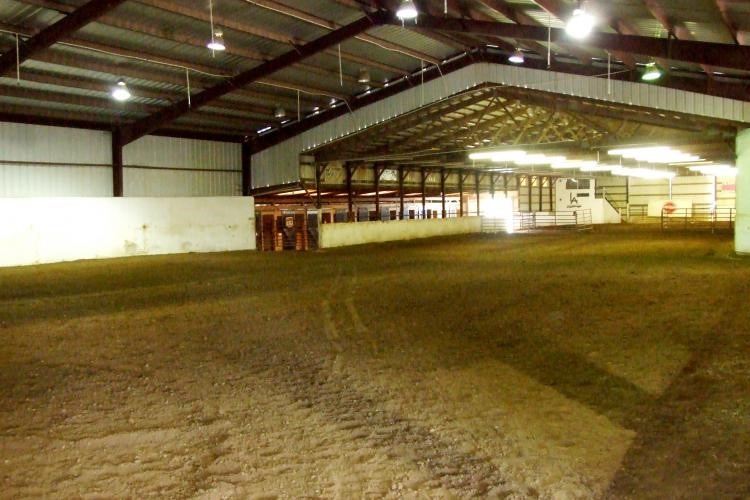Survey asks owners, managers and riders about air quality, conditions, arena footing and associated health outcomes in horses and people.
May 7, 2018

Little research has been conducted on indoor riding arena environments, so to remedy this gap in understanding the effects on horse and human health from indoor arenas, a graduate student in the University of Kentucky College of Agriculture, Food & Environment’s department of biosystems and agricultural engineering is conducting a survey to learn more.
Master’s degree candidate Staci McGill intends to gather information on how environmental exposures and arena design affect heat transfer, air quality and the health of both horses and riders. The survey will be available through July 24 at https://uky.az1.qualtrics.com/jfe/form/SV_cGxVEkR25RbJdmR.
The survey asks owners, managers and riders about air quality, conditions, arena footing and associated health outcomes in horses and people. It also includes questions about arena design, such as footing, maintenance, the number of windows and doors, the arena environment and if horses are stabled in the same building.
“I am a rider who has always been conscious of the fact that our horses are athletes. We ask them to do so much for us, and yet I’ve seen so many who are coughing or tripping and just not performing to the best of their ability,” McGill said. “I wondered if the environment they are in affects them, and I wanted to learn more.”
According to McGill, the survey will examine if there are common characteristics or designs used in the construction of indoor riding arenas, determine what ventilation is used and see if there are areas of concern from a health perspective. The accumulated data will ultimately result in advice on better design to provide the healthiest environment for horses, riders, trainers, instructors and spectators of equine sports, the university said.
McGill’s adviser, Morgan Hayes, University of Kentucky livestock systems extension specialist, said, “We suspect there are some common environmental challenges in arenas like dust levels and moisture management. Quantifying the percent of arena owners and occupants with environmental concerns will assist with prioritizing research needs.”
Another of McGill’s committee advisers, Mick Peterson, director of University of Kentucky Ag Equine Programs, explained the importance of the research. “In spite of the association of horse arenas with human and equine health, they continue to be built based on experience rather than science. This engineering research will help inform efforts within the industry to develop a more systematic understanding of the materials and designs of equine arenas,” he said.
“Environmental and occupational health are fundamental aspects of public health, and this research touches on both in the equestrian population. I am delighted to collaborate on a project that will provide a framework to potentially improve health outcomes across both occupational and recreational use of indoor equestrian arenas,” said committee member Kimberly Tumlin, assistant dean in the University of Kentucky College of Public Health. “This survey combines one of the first lines of assurance of environmental and occupational health, the design and engineering controls to minimize or eliminate environmental exposures. The participants in this survey will help us understand how design factors impact health outcomes, particularly in temperature and respiratory exposures.”
You May Also Like

.png?width=300&auto=webp&quality=80&disable=upscale)

